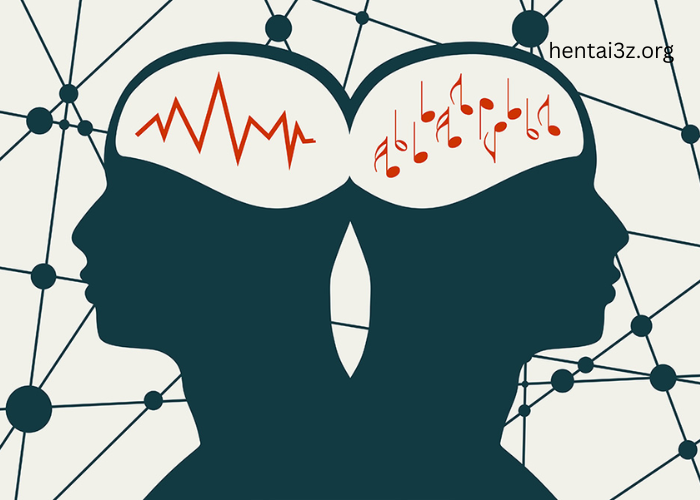Music is a universal language that transcends cultural boundaries and speaks to our emotions. Whether it’s the soothing sound of classical melodies or the energizing beats of rock and pop, music holds a powerful sway over our minds. But what exactly happens in the brain when we listen to music? Recent advances in neuroscience offer compelling insights into how music influences brain function, emotion, memory, and overall well-being.
How the Brain Processes Music
When we listen to music, multiple regions of the brain are activated simultaneously. This includes:
- Auditory cortex – interprets sound frequencies and rhythm.
- Prefrontal cortex – processes emotions and expectations.
- Motor cortex – engages with rhythm and movement.
- Hippocampus – involved in memory formation and emotional response.
- Nucleus accumbens – a key part of the brain’s reward system.
These areas work together to create a rich sensory and emotional experience. Unlike other activities that may activate only a few areas of the brain, music involves nearly every region, making it a full-brain workout.
Music and Emotion: Why It Moves Us
One of the most fascinating effects of music is its ability to elicit strong emotional responses. Whether it’s joy, sadness, nostalgia, or excitement, music can tap into our deepest feelings. Scientists have found that listening to music triggers the release of dopamine, the same “feel-good” neurotransmitter involved in pleasurable activities like eating and socializing.
Music can also influence the levels of cortisol, a hormone associated with stress. Soothing music has been shown to reduce cortisol levels, thereby decreasing stress and anxiety. This is why music therapy is often used in hospitals and mental health treatment centers to help patients cope with pain and emotional distress.
The Cognitive Benefits of Music
Enhancing Memory and Learning
Music has a significant impact on memory, especially in educational and therapeutic settings. Research suggests that musical training can enhance:
- Verbal memory
- Attention span
- Reading and language skills
In individuals with Alzheimer’s disease or other forms of dementia, familiar music can stimulate memories and improve cognitive function. The hippocampus, crucial for memory formation, becomes more active when people hear music that resonates with them.
Boosting Creativity and Focus
Background music, particularly instrumental or classical tracks, can enhance concentration and productivity. This effect is often referred to as the “Mozart Effect,” where listening to Mozart’s compositions temporarily boosts spatial-temporal reasoning skills.
Music can also encourage creative thinking by stimulating the brain’s default mode network (DMN), which is active during moments of mind-wandering and imagination.
Explore music and the Developing Brain
Music plays a vital role in childhood brain development. Exposure to music at a young age supports the growth of:
- Fine motor skills (through instrument playing)
- Language acquisition
- Emotional regulation
Studies show that children who engage in music education tend to perform better academically and exhibit improved social behavior.
In adolescents, music can act as an emotional outlet, helping them navigate complex feelings and social dynamics during this critical developmental stage.
Music and Neuroplasticity
One of the most exciting discoveries in neuroscience is neuroplasticity—the brain’s ability to reorganize itself by forming new neural connections. Musical training, especially over extended periods, enhances neuroplasticity. This means that musicians often have:
- Greater coordination between the left and right hemispheres of the brain
- More robust connections in the auditory and motor regions
- Improved cognitive flexibility
Even listening to music regularly can contribute to positive changes in brain structure and function over time.
Music Therapy: Healing Through Sound
Music therapy is a clinical, evidence-based practice used to improve mental, emotional, and physical health. Certified music therapists use various techniques, including:
- Guided listening
- Singing
- Songwriting
- Instrumental improvisation
This therapy is particularly effective for individuals with:
- PTSD
- Autism Spectrum Disorder (ASD)
- Parkinson’s disease
- Stroke recovery
- Depression and anxiety
Patients often show improved mood, communication skills, and physical coordination after consistent sessions.
The Role of Music in Sleep and Relaxation
Calming music can significantly improve sleep quality by slowing down brain wave activity. Music with a tempo of 60-80 beats per minute can synchronize with the body’s internal rhythms, inducing a state of relaxation. It lowers heart rate, blood pressure, and cortisol levels, making it an excellent non-pharmaceutical solution for insomnia.
Cultural and Social Dimensions of Music
Beyond individual brain responses, music also serves as a powerful tool for social bonding. Group music-making, such as singing in choirs or playing in bands, fosters a sense of community and belonging. These shared musical experiences activate oxytocin, the hormone associated with trust and empathy.
Cultural background also shapes how our brain interprets music. What sounds harmonious to one culture may not resonate the same way in another. Yet, the emotional impact of music appears to be universally recognized, suggesting a deep evolutionary link between music and human communication.
Frequently Asked Questions (FAQ)
Q1: Can listening to music really improve your mood?
Yes. Listening to music activates the brain’s reward system, releasing dopamine and endorphins. These chemicals enhance mood and can reduce feelings of stress or sadness.
Q2: Is there a best type of music for studying or working?
Instrumental music, such as classical, lo-fi, or ambient soundscapes, is often most effective. Lyrics can be distracting, especially when doing language-related tasks.
Q3: How does music help people with dementia?
Familiar music can stimulate memory and cognitive function in individuals with dementia. It often evokes positive emotions and can help with social interaction and communication.
Q4: Can children benefit from music even if they don’t play an instrument?
Absolutely. Listening to music and participating in musical activities (like singing or clapping to rhythms) can enhance brain development, language skills, and emotional intelligence.
Q5: What happens in the brain of a musician compared to a non-musician?
Musicians typically have enhanced connectivity between brain regions, stronger auditory-motor integration, and greater neuroplasticity due to sustained musical training.
Conclusion
The science behind music’s effect on the brain is both profound and inspiring. From improving memory and mood to fostering social bonds and enhancing learning, music is much more than just entertainment—it’s a powerful neurological tool. As research continues to unravel the mysteries of how and why music affects us so deeply, it becomes increasingly clear that music is an essential part of human health and development.
So next time you put on your favorite song, remember: you’re not just listening—you’re literally reshaping your brain, one note at a time.



